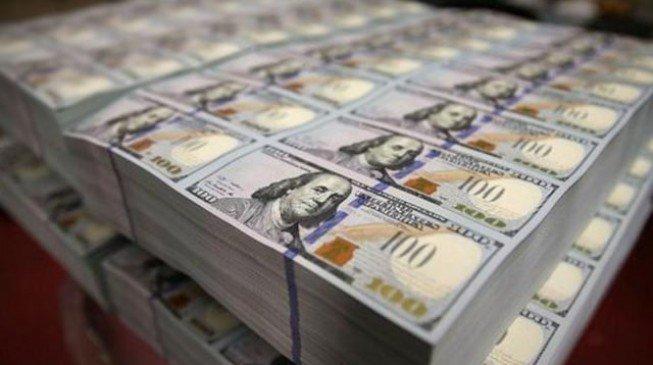Money market
Nigeria’s inflation rate to rise to 22.2% year-on-year — Coronation Merchant Bank
Coronation Merchant Bank has forecast a year-on-year increase in Nigeria’s inflation rate to 22.2% ahead of the release of the National Bureau of Statistics’ August inflation report.
Ms Chinwe Egwim, the bank’s chief economist, stated this on Wednesday during a panel discussion at the Chartered Institute of Bankers of Nigeria’s (CIBN) 15th Annual Banking and Finance Conference in Abuja.
The National Bureau of Statistics (NBS), stated that Nigeria’s headline inflation rate increased to 19.64% on a year-on-year basis in July. This means that in the month of July 2022 the general price level was 2.26% higher than in July 2021. On a month-on-month basis, the headline inflation rate in July 2022 was 1.817%, which was 0.001% higher than the rate recorded in June 2022 (1.816 %).
Egwim said, “Now, from our vantage point at Coronation, looking ahead in Nigeria, we expect further upticks in headline inflation. Our end-year forecast has inflation hitting 22.2 per cent on a year-on-year.
“This projection took into consideration modest increases in the month-on-month inflation. Our forecast is also influenced by structural issues impacting the cost of doing business such as insecurity and the impact of the Russia-Ukraine crisis on the economy.”
She also stated that the naira will see a surge in circulation at the end of the year, as this would be the peak of electioneering for the 2023 elections.
According to her, this is likely to cause some level of demand-pull inflation, as opposed to the existing cost-push inflation.
“Based on our model, headline inflation should moderate to about 17.28 per cent in 2023 and then it should maintain a downward trajectory to 11.35 per cent by 2025.
“We assume that the ongoing crisis would cease or that a workable solution to supply-side shocks and severe cost push inflation would be implemented, in addition to other assumptions,” she said.
On economic diversification, which includes non-oil exports, Egwim stated that if Nigeria’s non-oil export potential was maximized, a 2% increase in non-oil GDP could be achieved on a quarterly basis.
According to her, the 2% prediction excludes any major contractions in oil GDP or assuming that GDP maintains at its current level, as well as assuming that oil prices remain at or exceed 70 dollars per barrel.
She said, “Overall GDP can hit double-digit if we see a two per cent growth on a Q-on-Q basis and if we impose that across quarters, dragging all the way to 2025. We can see it hit as high as 11.25 per cent and a doubling essential if we are going to achieve inclusive growth, which is important to tackle the poverty levels that we are currently seeing.
“To support this diversification towards non-oil, banks can contribute in many ways, like accelerating the drive around sensitisation programmes, fairs and campaigns. This will help micro small and medium-sized businesses equip themselves with tools to enhance their eligibility with regards to gaining access to finance or gaining access to business expansion support.”
According to Egwim, it is crucial to maximize Nigeria’s non-oil export potential in light of the most recent foreign trade statistics made public by the NBS.
She claimed that in the first half of 2022, non-oil exports made up barely 26% of all exports.
She cited obstacles, a lack of infrastructure, and the caliber of present export goods as concerns affecting non-oil export growth.
Other problems, according to Egwim, involved production value chains and the value addition of certain export goods, particularly in the agriculture industry.
Money market
LCCI advocates discipline, export to sustain Naira appreciation

LCCI advocates discipline, export to sustain Naira appreciationThe Lagos Chamber of Commerce and Industry (LCCI) has emphasised the importance of maintaining discipline in the foreign exchange market to sustain the steady appreciation of the Naira.
The President and Chairman of the Council of LCCI, Mr Gabriel Idahosa, made the call in an interview with newsmen on Wednesday in Lagos.
Idahosa praised the efforts of the Central Bank of Nigeria in imposing discipline, attributing the recent Naira appreciation to curbing speculative activities.
“On the monetary side, the CBN is doing it. The primary efforts should continue to impose discipline in the foreign currency market.
“The abuses in the foreign currency market were prevalent and most of the fall in the value of the Naira in the last six months is not because there was any sudden calamity in the Nigerian economy.
“It was primarily because of very reckless speculations, that people were just speculating in the dollar, they had nothing to export, nothing to import, they were just buying the dollar for speculative reasons.
“And once the Central Bank started to impose discipline in the foreign currency market, we saw the value of the Naira rising very quickly by stopping speculation,” he said.
According to him, the strategies of the Central Bank, now, are designed to achieve a sustained discipline in the foreign currency market.
Idahosa highlighted the need to continue reducing the number of Bureau de Change operators, stressing that many operated without contributing to international trade.
He applauded the Central Bank’s move to enforce documentation and identification of buyers and sellers at BDCs, aiming to deter reckless speculation and curb illicit financial flows.
On the fiscal side, Idahosa urged President Bola Tinubu to prioritise a nationwide export drive, citing it as the key to bolstering the Naira and providing essential foreign exchange.
He emphasised the importance of fostering a culture of export among Nigerians across all scales of enterprise to reduce reliance on imports and strengthen the country’s economic resilience.
Money market
Foreign reserves decline to $32.29bn


The foreign reserve has depleted to $32.29 billion, which is a six-year low in the Central Bank’s course to save the naira.
This is the lowest level the reserves have been since September 25, 2017, when it was $32.28 billion.
The country’s foreign reserves declined by 6.2 percent, losing $2.6 billion since March 18, when the naira started its rebound from record-low levels against the dollar to $32.29 billion as of Monday, based on the latest available data from the CBN.
At the beginning of the month, the reserve was at $33.57 billion, then further dipped to $32.6 billion by April 12.
This comes as the CBN has attempted to save the naira through various interventions such as raising interest rates to 24.75 percent and managing foreign exchange trades.
It stepped up its intervention in the FX market with sales at both the official market and to BDC operators who sell dollars on the streets.
The apex bank, which sells $10,000 to each BDC every week, mandated them to only sell at a spread of 1.5 percent, which comes to N1,117 per US dollar.
The rate sold by the BDCs has set a defacto floor for the naira in the black market since the apex bank resumed sales to them in February.
Also, last month the CBN said it had cleared a backlog of $7 billion since the beginning of the year. That was built over the years as the central bank pegged its currency against the dollar, leading to a scarcity of foreign currency that deterred foreign portfolio investment. However, it’s unclear how much dollar debt the CBN retains on its books.
Akpan Ekpo, a professor of economics and public policy, said the CBN’s managed float system in which it is trying to ensure supply and curtail demand is not sustainable in the long term.
He said the CBN needs to be careful with how it depletes the foreign reserves as its main source is oil revenue.
“We need to manufacture non-oil goods and services, export them, and get foreign exchange and not depend on oil income,” he said.
Money market
CBN expresses commitment to harnessing digital technologies


The Central Bank of Nigeria says it is committed to harnessing the power of digital technologies to enhance financial inclusion.
CBN Governor, Mr Yemi Cardoso said this on Tuesday in Abuja, during a strategic institutions tour by participants of Senior Executive Course 46 of the National Institute of Policy and Strategic Studies (NIPSS).
Cardoso, who was represented by Dr Bala Bello, Deputy Governor, Corporate Services, said that digital technologies would also boost productivity and create an enabling environment for innovation and entrepreneurship to thrive.
According to him, the apex bank has already deployed robust digital technologies in driving most of its processes towards achieving optimal performance.
He said that NIPSS, as a foremost national policy think-tank, had made invaluable contributions to the socio-political and macroeconomic development of Nigeria.
“We are, therefore, not surprised at the apt and relevant choice of your research theme.
“The CBN and NIPSS have had a long-standing and robust working relationship since the establishment of the institute. This has culminated into positive mutual benefits for the two institutions.
“The CBN, on the one hand, has provided infrastructural support to the institute through construction of an auditorium and a hostel, in addition to the provision of technical support.
“On the other hand, NIPSS has supported the technical capacity of the CBN through the training of some personnel both at senior executive course level and intermediate course cadre,” he said.
The Director-General of NIPSS, Prof. Ayo Omotayo, said that the study visiting would be representing the institute in getting information from operators of the apex bank on the relevance of digital technology to developing jobs for Nigerian youths.
According to Omotayo, a lot of progress has been made globally in using digital systems to run the economy.
“The more of our activities that we can put in digital format, the more we get the opportunity of providing employment access to a whole lot of the 120 million active Nigerians.
“We at NIPSS always knock at the frontiers of knowledge, checking what is going to happen in the immediate future.
“We are working towards a system where we believe that almost every service can be delivered digitally,” he said.
The Acting Director, Monetary Policy Department of the CBN, Dr Lafi Bala Keffi, commended the NIPSS study group for its interest in the apex bank.
She urged the participants to explore the time-tested culture of NIPSS, which is to diagnose national, profer practical solutions and recommend ways of making such solutions realisable.
-
Finance3 months ago
Court orders Sen. Victor Umeh to repay N136m bank debt to AMCON
-



 Abuja Update2 months ago
Abuja Update2 months agoUNDP, FG partnership needed to achieve inclusion, equity- Minister
-
Abuja Update3 weeks ago
Banks drive stock market performance with N147bn gain
-



 Infotech2 weeks ago
Infotech2 weeks agoWorld Backup Day: NITDA urges Nigerians to ensure backup of data
-
capital market2 years ago
Rt.briscoe, FBNH, Others halts negative performance of stock market
-



 Health2 weeks ago
Health2 weeks agoImmunisation: FG, GAVI seek synergy with Sokoto Govt.
-
Submission Guidelines3 months ago
CALL FOR SUBMISSIONS: POETRY COLUMN-NND
-
Infotech1 week ago
Forex for Beginners: Unveiling the currency exchange and how to trade it




